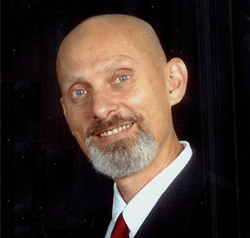One question that you frequently hear after conferences and meetings is, “How did you find the professional speaker?” I suppose if you are the meeting planner or the head of the association that booked the speaker it is a fair question. It is a matter of seeking out and finding the best professional speaker for what the meeting needs. If you are an audience member or a conference participant, it is also a fair question. People invest a lot of time, effort and expense to attend meetings and conferences and they make these investments with the expectation that they will be wowed, be moved, be motivated and inspired.
How do meeting planners, association executives and corporate event managers find a professional speaker that is best suited for the audience? There are many speaker bureaus that act as agents and promoters for celebrities, authors, academics and business leaders who have gotten good reviews from audiences and meeting planners. A bureau is a good place to go when you are looking for a big name or a professional speaker with a certain twist that is required for the meeting. If you search on “speaker bureau”, you will find all sorts of resources that will enable you to better qualify who might bring down the house for your meeting.
By the way, I love that saying, “bring down the house”. I think we all know what it means, but where did the saying come from? Was there a time when audiences clapped and hollered so intensely for a performance they loved, that the theater could not withstand the vibration and began to fall apart or collapse? Imagine the conflicted feelings you would have as a performer if you wanted the audience to be thrilled with your work, but you did not want them to be so thrilled that the “house” or the theatre would collapse and kill you and everyone else. Perhaps this is why top performers will often flee the theatre in a limousine right after the last curtain call. They may just want get out before the house comes down.
Perhaps the saying comes for a time when the audiences would mob the stage to congratulate performers, seek to touch them or seek to get their autographs. I could see that the members of “the house” or the audience members might want to rush down from their seats to performers that they loved at the end of a show. Here again, the performer would have some conflicted feelings about doing a great performance. If you are too good you could bring down the whole house and get crushed in the mob. This would also be great motivation to slip out the stage door as quickly as possible after the final bow. It would be hard to perform again the next night if you were bruised and battered from bringing down the house in one big mosh pile.
The theatre has other odd sayings that sound kind of dangerous but we still use them. Don’t you say “break a leg” to someone before they perform? I cannot understand where this one comes from or how anything I can imagine around the image of breaking a leg could be good for the show or good for the performer. Maybe it was just a tension reliever for people who were pumped up and having butterflies in their bellies to get a chuckle out of them before the curtain would come up?
Don’t we also say “knock ‘em dead!” to someone about to perform? Do you really want people to laugh so hard at your comedy that they have an aneurism and die in their seats? Do you really want people to cry so hard at the tragedy of the play that they die of a broken heart right there in the theatre? One certainly wants the audience to be touched and to be moved by the message and by the story. But how could audiences go out and spread the word about a great performance if they died in their seats?
Isn’t a performer’s worst fear to “die” on stage in front of the audience? I suppose there was a time in the theatres and amphitheatres of ancient Rome that an audience member could actually kill a performer who was lousy. Maybe this is why there was no professional speaker career path in those days. It might have been safer to be a centurion or a cloth weaver than to risk having the audience kill you when your comedy went flat or your tragedy did not cause weeping.
So in today’s world you can find speakers through a bureau quite easily. You can also find speakers by contacting someone whose book you liked. Many authors end up becoming a professional speaker when their books strike a note with readers. Business leaders are also in demand. Many times a trade association will seek out members of its industry who have a track record, are movers and shakers, or are people who are on the cutting edge of the innovation in that industry.
You can also find a professional speaker by browsing on line with various general and specific keywords or phrases that relate to what the meeting or event might focus on. It is also fun to discover people who are not yet big names or people who have a unique or interesting way of looking at issues that impact the audiences that planners are serving.
So the answer for the meeting planner or event coordinator when asked “how did you find the professional speaker?” should be an easy one. There also should be plenty of reasons why that particular speaker was expected to do well and to move the audience.
The answer that the audience member comes up with when asked “How did you find the professional speaker?” could range anywhere from “Boring!” to “life-changingly awesome!”

